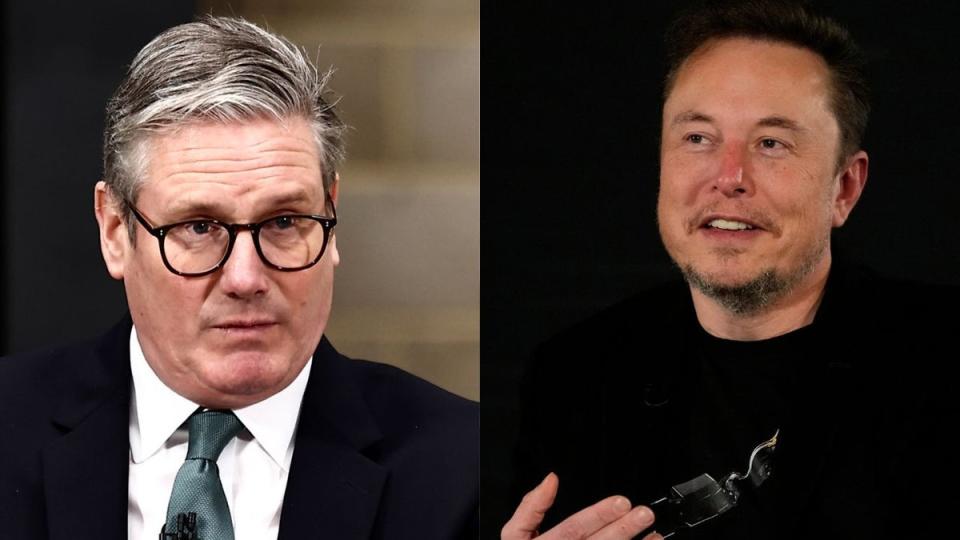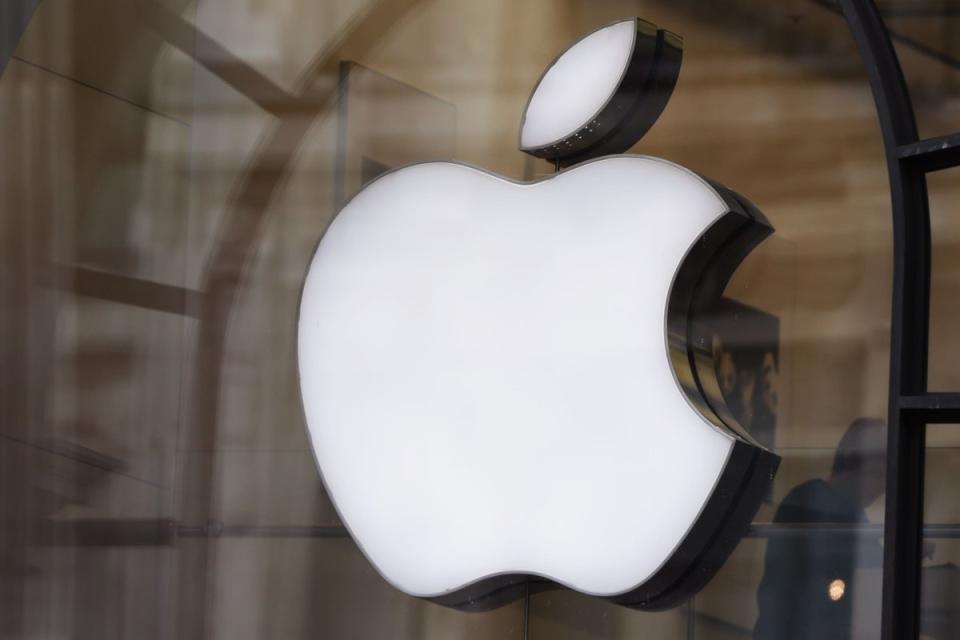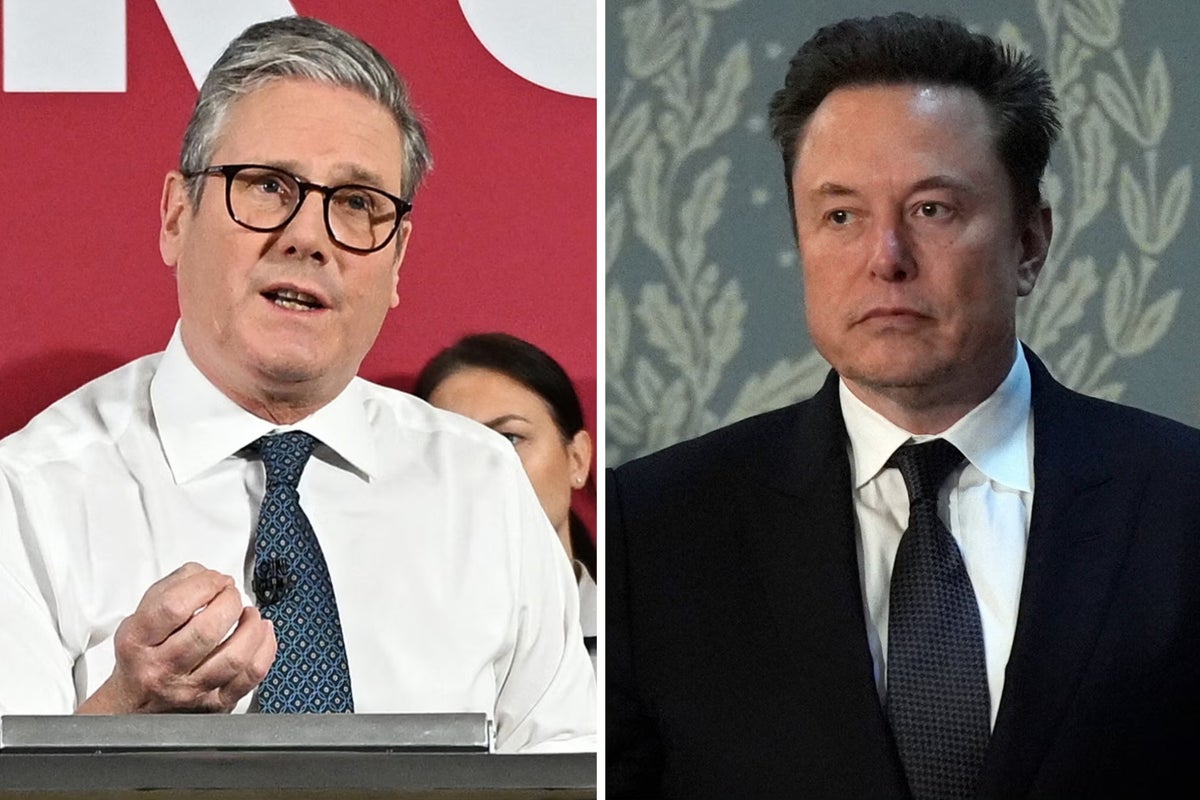“Tesla Titan vs Labour Leader: Elon Musk Fires Back at Keir Starmer Over Apple Users’ Data Row” In a shocking turn of events, the tech world has been abuzz with a heated debate between two influential figures: Elon Musk and Keir Starmer. The controversy stems from a recent statement by the Labour leader, which has caught the attention of the billionaire entrepreneur and CEO of Tesla and SpaceX. The row revolves around Apple users’ data, and in a surprising move, Musk has fired back at Starmer, leaving many wondering what sparked this unexpected feud. In our exclusive article, we’ll delve into the details of this high-stakes battle, exploring the statements made by both parties and what it means for the future of data protection. Stay tuned to find out what’s behind the latest tech drama making headlines.
The Feud Continues: Elon Musk vs Keir Starmer

Elon Musk, the tech billionaire, has reignited his feud with Keir Starmer, the UK Prime Minister, over the government’s controversial attempt to access Apple users’ data. Musk called the decision “crazy” and retweeted a social media post that dubbed it a “global privacy nightmare”.

Elon Musk’s Reaction: A “Global Privacy Nightmare”
Musk’s reaction came after the UK government ordered Apple to allow it access to users’ encrypted files, prompting allegations of an “unprecedented attack” on privacy rights. The order was issued under the Investigatory Powers Act 2016, which enables authorities to compel assistance from companies when it needs to collect evidence.

A Long-Running War of Words: Musk’s History with Starmer
This is not the first time Musk has clashed with Starmer. Last month, Musk triggered an explosive row over politicians’ handling of child grooming gangs, and in the past, he has suggested that the UK was on the brink of ‘civil war’ in the wake of the Southport stabbings. The feud between Musk and Starmer has been ongoing, with Musk calling for the King to step in and dissolve parliament after Labour rejected a call for a national inquiry.
The Impact on Their Relationship: Where Does it Go from Here?
The latest row between Musk and Starmer raises questions about the impact on their relationship and the implications for the tech industry as a whole. With Musk being a vocal critic of the government’s handling of privacy and security, it remains to be seen how this feud will play out in the coming months.
The UK Government’s Controversial Order
The UK government’s order to Apple has sparked widespread criticism, with many arguing that it constitutes an “unprecedented attack” on privacy rights. The order, issued under the Investigatory Powers Act 2016, enables authorities to compel assistance from companies when it needs to collect evidence.
What’s at Stake: Access to Apple Users’ Encrypted Files
The government’s order seeks to gain access to Apple users’ encrypted files, sparking concerns about the potential implications for user privacy. With Apple’s current setup, no one else can access a user’s data, not even the company itself. The order has been met with widespread criticism, with many arguing that it would create a “backdoor” that could be exploited by criminals or authoritarian regimes.
The Investigatory Powers Act 2016: The Government’s Justification
The government has justified the order by citing the need to combat terrorism and child abuse, arguing that encrypted communications are often used by criminals to evade justice. However, critics argue that the order goes too far, and that creating a backdoor would compromise user privacy and security.
Critics’ Concerns: An “Unprecedented Attack” on Privacy Rights
Critics, including civil liberties campaign group Big Brother Watch, have argued that the order constitutes an “unprecedented attack” on privacy rights. Rebecca Vincent, from Big Brother Watch, said that ordering Apple to create a backdoor “that would effectively break encryption for millions of users – (would be) an unprecedented attack on privacy rights that has no place in any democracy.”
Apple’s Stance on User Privacy
Apple has consistently defended users’ right to privacy, arguing that it is a “fundamental human right”. The company’s current setup means that no one else can access a user’s data, not even the company itself.
A “Fundamental Human Right”: Apple’s Commitment to Privacy
Apple has repeatedly emphasized its commitment to user privacy, stating that it regards privacy as a “fundamental human right”. The company has also argued that creating a backdoor would compromise user security, as it could be exploited by criminals or authoritarian regimes.
The Company’s Current Setup: No Backdoors Allowed
Apple’s current setup means that no one else can access a user’s data, not even the company itself. This has led to tensions with governments and law enforcement agencies, who argue that they need access to encrypted communications to combat terrorism and child abuse.
The Risks of Creating a Backdoor: Implications for Users and the Company
The risks of creating a backdoor are significant, with many arguing that it would compromise user security and privacy. Apple has repeatedly emphasized the importance of protecting user data, and has argued that creating a backdoor would undermine trust in the company and its products.
Expert Analysis and Implications
The row between the UK government and Apple has sparked widespread debate and criticism, with many experts arguing that the government’s order constitutes an “unprecedented attack” on privacy rights.
Big Brother Watch: “An Unprecedented Attack on Privacy Rights”
Rebecca Vincent, from Big Brother Watch, said that ordering Apple to create a backdoor “that would effectively break encryption for millions of users – (would be) an unprecedented attack on privacy rights that has no place in any democracy.”
The Potential Consequences: A Global Privacy Nightmare Unfolds
The potential consequences of the government’s order are significant, with many arguing that it would create a “global privacy nightmare”. If Apple were to comply with the order, it would set a dangerous precedent, potentially allowing governments to access encrypted communications and compromising user privacy and security.
What’s Next: Will the Government Back Down or Press On?
The row between the UK government and Apple raises questions about what’s next. Will the government back down or press on with its demands? The implications for user privacy and security are significant, and it remains to be seen how this feud will play out in the coming months.
The Broader Debate: Encryption, Privacy, and Security
The row between the UK government and Apple has sparked a broader debate about encryption, privacy, and security. With governments and law enforcement agencies seeking greater access to encrypted communications, the tension between privacy and security has never been more pronounced.
The Tension Between Privacy and Security: Where Do We Draw the Line?
The tension between privacy and security is a complex one, with many arguing that the two are mutually exclusive. However, others argue that it is possible to strike a balance between the two, protecting user privacy while also combating terrorism and child abuse.
The Role of Tech Firms in Protecting User Data: A Moral Obligation?
The role of tech firms in protecting user data is a significant one, with many arguing that it is a moral obligation. Apple’s commitment to user privacy has been praised by many, but others argue that the company has a responsibility to work with governments to combat terrorism and child abuse.
The Future of Encryption: Will Governments Find a Way to Break It?
The future of encryption is uncertain, with many arguing that governments will eventually find a way to break it. However, others argue that encryption is a fundamental component of online security, and that compromising it would have significant consequences for user privacy and security.
Practical Considerations for Apple Users
The row between the UK government and Apple has significant implications for Apple users, who are wondering what this means for their data and how they can protect it.
What This Means for Your Data: Are You at Risk?
The government’s order has sparked concerns about the potential risks to Apple users’ data. With Apple’s current setup, no one else can access a user’s data, not even the company itself. However, if the government’s order is successful, it could compromise user privacy and security.
How to Protect Your Data: Tips and Tricks for Apple Users
There are steps that Apple users can take to protect their data, including using strong passwords, enabling two-factor authentication, and regularly updating their devices. Users should also be cautious when clicking on links or downloading attachments from unknown sources.
The Importance of Staying Informed: How to Stay Up-to-Date on the Latest Developments
Staying informed is crucial in the face of evolving threats to user privacy and security. Apple users should stay up-to-date on the latest developments, including any changes to Apple’s policies or practices, and be vigilant about protecting their data.
Conclusion
As we conclude our examination of Elon Musk’s scathing rebuke of Keir Starmer over Apple users’ data, it’s clear that the issue at hand is more than just a heated exchange between two prominent figures. At stake is the very fabric of data privacy and the responsibility that comes with wielding immense technological power. Musk’s assertion that Apple is “complicit” in the unauthorized sharing of user data raises important questions about the tech giant’s commitment to safeguarding its customers’ personal information.
The implications of this dispute are far-reaching, with the potential to impact the way we interact with technology and the level of trust we place in companies that collect and store our data. As the global digital landscape continues to evolve, it’s crucial that we hold these corporations accountable for their actions and ensure that they prioritize transparency and security above all else. The future of data privacy hangs in the balance, and it’s up to us to demand better from the companies that shape our digital lives.
In the end, Musk’s bold statement serves as a wake-up call to the tech industry and its leaders: the era of complacency is over. The era of accountability has begun. As we move forward, it’s imperative that we prioritize the protection of user data and hold those in power to the highest standards of transparency and responsibility. The stakes are higher than ever before, and it’s up to us to ensure that the future of technology is one that is built on trust, security, and a commitment to the well-being of its users.












Add Comment